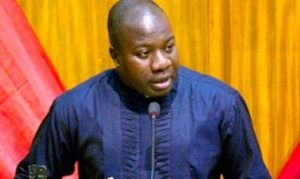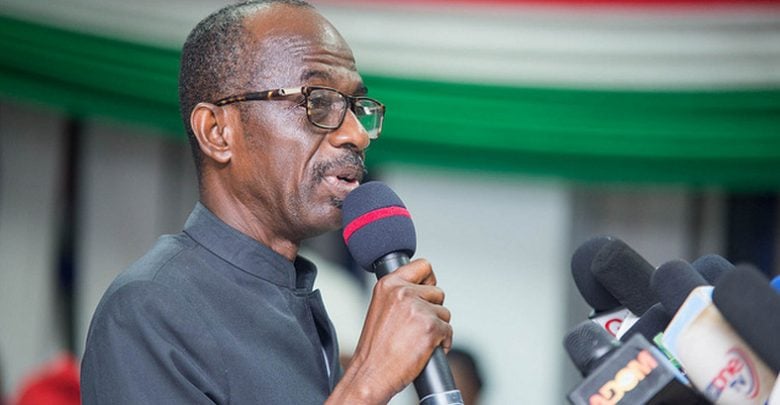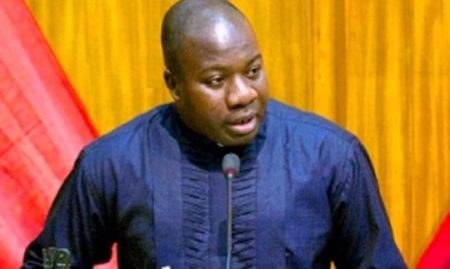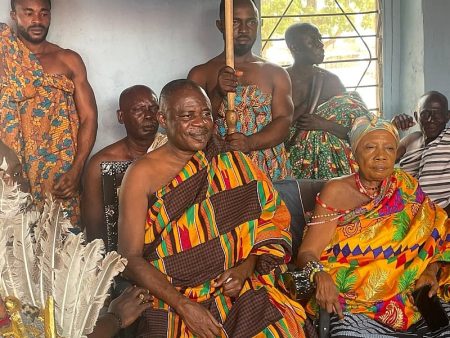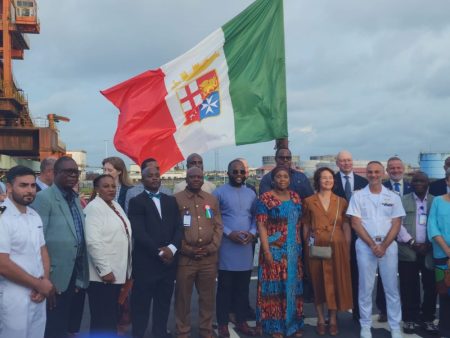The National Chairman of the National Democratic Congress (NDC), Johnson Asiedu Nketiah, recently addressed the need for Ghanaians to choose leaders who prioritize sustainable development rather than those who resort to vote-buying tactics. Speaking during a three-day tour of the Ashanti Region, specifically in Akomadan Afrancho, Nketiah criticized the ruling New Patriotic Party (NPP) for what he described as deceptive practices in governance. He urged citizens to be wary of political tactics that focus on immediate gains rather than long-term benefits, highlighting that the future of the nation depends on electing leaders committed to genuine development.
Nketiah illustrated the contrasts between the NDC’s approach to politics and that of the NPP by suggesting a hypothetical scenario where important infrastructure projects, like the road from Akomadan Afrancho to Kyiraa, could be neglected in favor of short-term solutions such as purchasing cutlasses and food items to secure votes. He emphasized that such strategies undermine real progress and that voters should recognize the difference between transient, superficial rewards and substantial investments in their communities. This commentary reflects a broader concern about the coercive impact of immediate financial incentives on the political landscape in Ghana.
In his remarks, Nketiah stressed the importance of holding political leaders accountable for their promises and actions. He claimed that the NPP has consistently taken its supporters in the Ashanti region for granted, focusing resources and development efforts on areas where they can secure more votes instead of nurturing loyalty in regions where they have strong backing. This neglect, he argued, suggests a troubling pattern where political affiliation and loyalty are exploited rather than valued, leading to a disconnection between political leaders and the communities they profess to serve.
Moreover, Nketiah’s comments spotlight the recurrent theme in Ghanaian politics where patronage and dependency have become normalized. By purchasing votes, parties not only jeopardize the integrity of democratic processes but also contribute to a cycle of underdevelopment, as immediate gratifications overshadow essential infrastructural projects and social development initiatives. He challenged the electorate to reconsider the implications of their choices and emphasized prioritizing leaders who demonstrate a commitment to substantial policies that will uplift communities over ephemeral inducements.
Through this discourse, Nketiah called for a collective awakening among voters, urging them to recognize the long-term consequences of electing leaders based on short-sighted tactics. He painted a vivid picture of a political environment where true development leaders are overshadowed by those who prioritize temporary allurements. Nketiah’s assertions serve as a reminder that the efficacy of governance is reflected not just in fulfilling immediate needs but also in fostering an environment conducive to resilience and growth for future generations.
In conclusion, Asiedu Nketiah’s address in Akomadan Afrancho serves as a clarion call for Ghanaians to reconsider their electoral choices in the face of deceptive political strategies. By challenging the status quo and emphasizing the importance of sustainable governance, he advocates for a more conscious electorate that prioritizes the long-term welfare of the nation over transient gains. His criticisms of the NPP highlight the dangers of political complacency and the necessity for accountability, urging citizens to demand leaders who are genuinely invested in the progress of all communities, especially those that have historically supported them.


